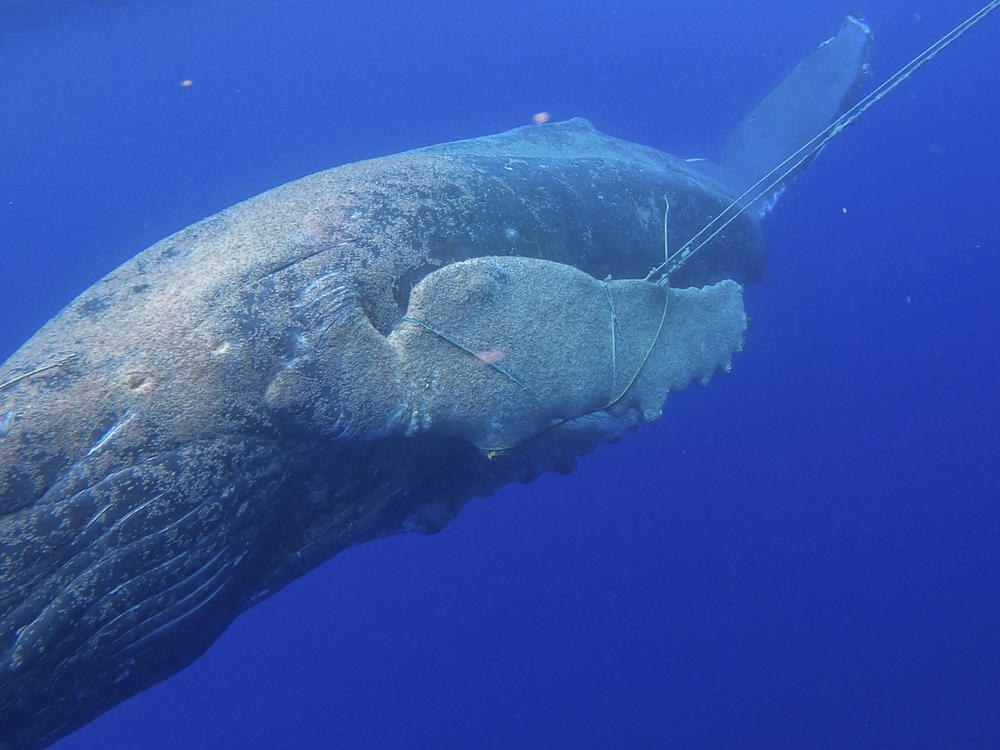Section Branding
Header Content
Young Humpback Whale Freed Off Coast Of Maui
Primary Content
A young, sickly whale that was trapped in more than a 100 feet of line off the coast of Maui was freed on Wednesday, following a harrowing rescue effort.
Trained responders from the National Oceanic and Atmospheric Administration's Hawaiian Islands Humpback Whale National Marine Sanctuary led the mission on Tuesday to untangle the small gauge line from the whale's mouth and pectoral flipper, the Honolulu Star-Advertiser reported.
The team was off to a promising start. They successfully removed the dangerous line around the flipper but some of the gear that was wrapped around the sea creature's mouth was too difficult to pull out.
"When the flipper came free, the whale sped up, its tail got higher and it started moving better," Ed Lyman, the sanctuary's Natural Resource Management Specialist, told the Associated Press.
Despite their expert work, Lyman said, "We were defeated on the mouth again. We pulled, but you can't pull too hard."
Humpback whales, which were once highly endangered but are now recuperating, live in oceans all around the world. They migrate among feeding grounds every year, with some swimming up to 5,000 miles.
On Tuesday, Lyman said the struggling juvenile whale looked familiar. He suspects it is the same one that was "reported to be entangled about a month ago in the same area," according to the AP.
And although the animal appeared to be much better once it was freed, Lyman said it may not be in the clear. The whale is emaciated and has patches of whale lice.
"We definitely helped it, and increased its chances of survival," he said. "But it's worse off than we thought," Lyman said.
Copyright 2021 NPR. To see more, visit https://www.npr.org.

